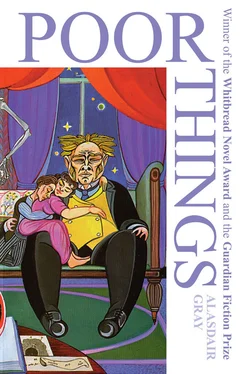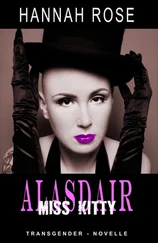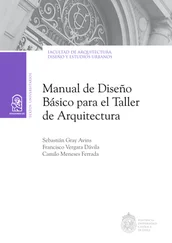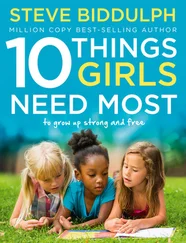
Harry is bad because he enjoys how cruelly folk act and suffer, wants to persuade me bad is needed. If he succeeds he will have made me bad too. I listen to him because I need to know all he knows. He is as honest as God and teaches facts God never taught — all the things I must change, so had better note down.
WOMEN OF LEISURE— “Napoleon regarded women as the relaxation of the warrior. In England wives are treated as the public ornaments and private pleasure parks of wealthy landowners, industrialists and professional men. The joys of motherhood are closed to them, for after the pains of childbirth their offspring are caressed and cared for by servants. They are supposed to be superior to the animal pleasure of breast-feeding — supposed to be superior to the sexual act itself — yet all the time they are as much parasites, prisoners and playthings as odalisques in a Turkish harem. If an intelligent woman of this class does not find an unconventionally sensitive husband her life can be as painful as that of the women who spend years dying of slow suffocation while drudging in the Lancashire weaving-sheds. And that is why you should marry me, Bella. You will be my slave in law, but not in fact.”
EDUCATION— “Very poor children learn to beg, lie and steal from their parents — they would hardly survive otherwise. Prosperous parents tell their children that nobody should lie, steal or kill, and that idleness and gambling are vices. They then send them to schools where they suffer if they do not disguise their thoughts and feelings and are taught to admire killers and stealers like Achilles and Ulysses, William the Conqueror and Henry the Eighth. This prepares them for life in a land where rich people use acts of parliament to deprive the poor of homes and livelihoods, where unearned incomes are increased by stock-exchange gambling, where those who own most property work least and amuse themselves by hunting, horse-racing and leading their country into battle. You find the world horrifying, Bell, because you have not been warped to fit it by a proper education.”
KINDS OF PEOPLE— “There are three kinds of people. The happiest are the innocent who think everyone and everything basically good. Many children are like that and so were you until Hooker (very much against my will) showed you otherwise. The second and biggest kind are half-baked optimists: people with a mental conjuring trick which lets them look at hunger or mutilation without discomfort. They think the wretched deserve to suffer, or that their nation is curing — not causing — these miseries, or that God, Nature, History will make everything right one day. Doctor Hooker is one of that sort and I am glad his rhetoric did not blind you to the facts. The third and rarest sort know human life is an essentially painful disease which only death can cure. We have the strength to live consciously among those who live blindly. We are the cynics.”
“There must be a fourth kind,” I said, “because I am no longer innocent and hate what Dr. Hooker and what you think equally.”
“That is because you are searching for a way which does not exist.”
“I will search as long as I live rather than be a childish fool or selfish optimist or equally selfish cynic,” I told him, “and I will make my husband a searcher too.”
“You will be a tiresome couple.”
HISTORY— “Big nations are created by successful plundering raids, and since most history is written by friends of the conquerors history usually suggests that the plundered were improved by their loss and should be grateful for it. Plundering happens inside countries too. King Henry the Eighth plundered the English monasteries, the only institutions in those days which provided hospitals, schools and shelter for the poor. English historians agree King Henry was greedy, hasty and violent, but did a lot of good. They belong to a class which was enriched by the church lands.”
THE BENEFITS OF WAR— “Napoleon gave Britain our advantage as an industrial nation. To fight him all around Europe the government introduced heavier taxes which chiefly oppressed the poor, and used much of this money to buy continual supplies of uniforms, boots, guns and shipping. All kinds of factories were built. Many able-bodied men were abroad with the army, but new machines made it possible to run factories with the cheap labour of women and children. This enhanced the profits so much that we could invest in trains, iron-clads and a big new empire. We owe a lot to Boney.”
UNEMPLOYMENT— “When the Napoleonic war ended it left so many people unemployed and hungry that a parliamentary committee met to discuss the matter — the government feared a revolution. A socialist factory owner called Robert Owen suggested that every firm or business whose profits exceeded five per cent should spend the extra money on the better feeding, housing and schooling of their workers, instead of using it to undercut competitors. However, the Malthusians proved that the better you feed the poor the more they breed. Poverty, hunger and disease may drive some people to steal loaves from bakeries and dream of revolutions, but make revolutions less likely by weakening the bodies of the desperately poor and keeping down their number through infant mortalities. Do not shudder, Bell. What Britain needed — and got! — were military barracks beside every industrial city, a strong police-force, huge new jails; also poor-houses where children are divided from parents and husbands from wives — places so deliberately grim that people with a spark of self-respect spend their last few pennies on cheap gin and die of exposure in ditches rather than enter them. That is how we have organized the world’s richest industrial nation and it works very well.”
FREEDOM— “I am sure there was no word for freedom before slavery was invented. The old Greeks had every sort of government — monarchies, aristocracies, plutocracies, democracies — and argued fiercely about which system gave people most freedom, but all of them kept slaves. So did the ancient Roman republic. So did the stout squires who founded the U.S.A. Yes, the only sure definition of freedom is non-slavery. You may have heard it in a popular song:
Rule, Britannia! Britannia rule the waves!
Britons never never never will be slaves!
In the days of Good Queen Bess we English were so disgusted by the cruel way the Spaniards enslaved the American Indians that we plundered their treasure ships whether at war with them or not. In 1562 Sir John Hawkyns (who became paymaster of the navy and hero of the Armada fight) started the British slave trade by stealing black slaves from the Portuguese in Africa and selling them to the Spaniards in the New World. Parliament made that trade a criminal offence in 1811.”
“Good!” I said, “and now the Americans have abolished it too.”
“Yes. It only profited their southern farmers. Modem industry finds it cheaper to hire hands for days or weeks — when not needed they are free to beg work from other masters. When many free men are begging for work the masters are free to lower wages.”
FREE TRADE— “Yes, our parliament has defined freedom as our ability to buy as cheap as possible and sell as dear as possible anywhere, with the help of our army and navy. This enables us to cut up countries with famines as readily as a carpenter cuts wood with a saw. Listen carefully, Bell.
“Indian weavers used to make the finest cotton cloth and muslin in the world, and only British merchants were free to sell it — the French had tried to do that, so we drove them out of India. Then we British learned how to make cloth more cheaply with machinery in our own factories, so we needed raw Indian cotton and Angora wool and could stop anyone else buying Indian cloth. Soon after one of the governors we had given to India reported that the plains of Dacca were littered with the bones of the weavers.
Читать дальше













